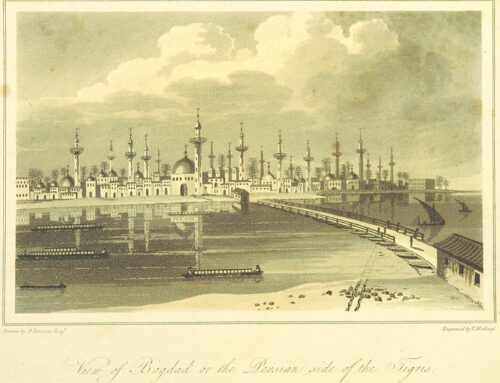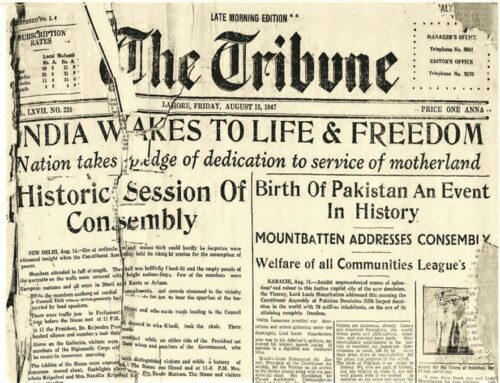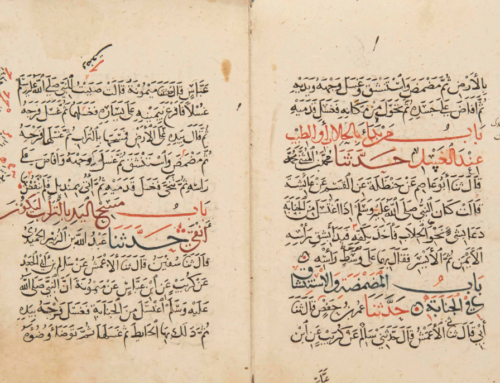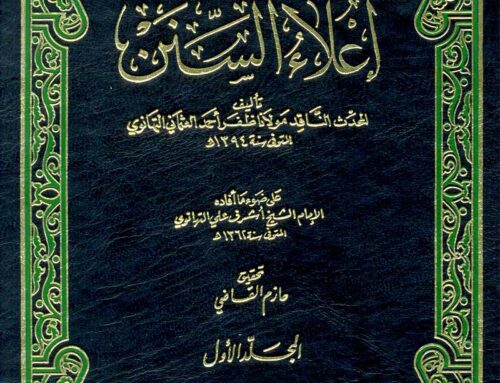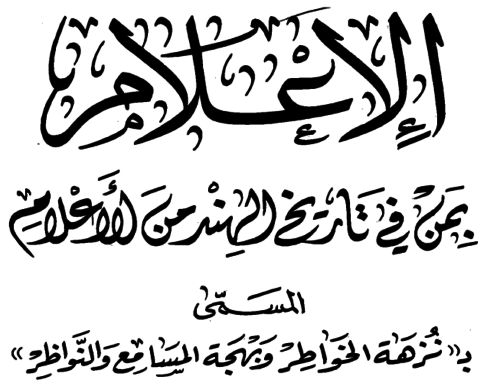By Mawlana ‘Ubayd Allah Sindhi
Translated by Muhammad Habib
Shaykh al-Hind Mawlana Mahmud Hasan was my teacher. During my stay at Dar al-‘Ulum Deoband my sole reliance was upon him. His father’s name was Dhu ‘l-Fiqar ‘Ali. His genealogy stretches back to the Umayyad branch of the Quraysh.
Mawlana Mahmud Hasan was born in 1268 AH/1851 CE. He gained primary education from his father and paternal uncle. He gained admission into the Madrasah of Deoband when it was founded in 1283 AH /1866 CE, and studied under Mawlana Muhammad Ya’qub ibn Mamluk ‘Ali and Mawlana Mahmud Deobandi. He remained in the company of Shaykh al-Islam Mawlana Muhammad Qasim [Nanautwi] and benefited from him immensely [1]Shaykh al-Hind Mawlana Mahmud Hasan’s study of hadith was completed between 1286 AH and 1289 AH, over a period of four years, under the guidance of Lisan al-Hikmah Mawlana Muhammad Qasim … Continue reading. He sought permission from Mawlana Ahmad ‘Ali [Saharanpuri], Shaykh Muhammad Mazhar Nanautwi and Shaykh ‘Abd al-Rahman Panipati [2]All of whom were students of Shah Muhammad Ishaq Dehlawi. (translator) to teach and impart knowledge. Considering him worthy of such a post, they all granted him ijazah.
When Shaykh al-Islam Muhammad Qasim visited Madinah, he also obtained ijazah for Mawlana Mahmud Hasan from Mawlana ‘Abd al-Ghani [3]Mawlana Miyan Asghar Husayn Deobandi writes that Mawlana Shah ‘Abd al-Ghani also granted Shaykh al-Hind ijazah in tasawwuf. (Please see Hayat-e-Shaykh al-Hind) (translator) . Apart from him, Mawlana Mahmud Hasan also derived benefit from Haji Imdad Allah in compliance with the instruction of Mawlana Muhammad Qasim.
From among the elders who attained knowledge from Mawlana Muhammad Qasim, three came to be especially renowned and distinguished. However, from them, Hadrat Shaykh al-Hind loved his teacher the most. He was the chief inheritor of his teacher’s knowledge, and was his most ardent follower. I studied Shaykh al-Islam Mawlana Muhammad Qasim’s book Hujjat al-Islam from him. Whilst studying the book, I would, at times, feel as if knowledge and faith was descending into my heart from above. My belief regarding the blessed person of Hadrat Shaykh al-Hind is that he was naturally endowed with intelligence and sagacity. He may be considered amongst those [learned] personalities whom, in the terminology of Shah Wali Allah, are called ‘mufahhamun.’ [4]For a detailed explanation of this term please refer to Imam Shah Wali Allah’s Hujjat Allah al-Balighah, Bab Haqiqat al-Nubuwwah wa Khawassiha (chapter 55 of the English rendering by Marcia … Continue reading He was greatly devoted to his teacher and would zealously attempt to follow him. He inherited the disposition (nisbah) of humility and selflessness from Shaykh al-Islam Mawlana Muhammad Qasim. Shah Wali Allah has identified this nisbah as that of the Ahl al-Bayt in his books. Hadrat Shaykh al-Hind passed away on the 18th of Rabi’ al-Awwal 1339 AH, corresponding to the 3rd of November 1920 CE, a full one hundred years after the death of Imam ‘Abd al-‘Aziz [Dehlawi] [5]This may be significant as Mawlana ‘Ubayd Allah Sindhi considers the Deobandi political movement, of which Shaykh al-Hind was a leader, an evolvement of the movement led by Imam Shah ‘Abd … Continue reading.
Shah Wali Allah awr unki Siyasi Tahrik, p. 203-204 (Sindh Sagar Academy, 2008 ed.) by Mawlana ‘Ubayd Allah Sindhi
| ↑1 | Shaykh al-Hind Mawlana Mahmud Hasan’s study of hadith was completed between 1286 AH and 1289 AH, over a period of four years, under the guidance of Lisan al-Hikmah Mawlana Muhammad Qasim Nanautwi. The first two of these years were spent, not in a Dar al-Hadith, but while alternating between Delhi, Deoband and Nanautah, with Shaykh al-Hind accompanying his beloved teacher constantly, diligently serving him and acquiring his wisdom and knowledge. (translator) |
|---|---|
| ↑2 | All of whom were students of Shah Muhammad Ishaq Dehlawi. (translator) |
| ↑3 | Mawlana Miyan Asghar Husayn Deobandi writes that Mawlana Shah ‘Abd al-Ghani also granted Shaykh al-Hind ijazah in tasawwuf. (Please see Hayat-e-Shaykh al-Hind) (translator) |
| ↑4 | For a detailed explanation of this term please refer to Imam Shah Wali Allah’s Hujjat Allah al-Balighah, Bab Haqiqat al-Nubuwwah wa Khawassiha (chapter 55 of the English rendering by Marcia Hermansen. (translator) |
| ↑5 | This may be significant as Mawlana ‘Ubayd Allah Sindhi considers the Deobandi political movement, of which Shaykh al-Hind was a leader, an evolvement of the movement led by Imam Shah ‘Abd al-‘Aziz Dahlawi. Please refer to Mawlana ‘Ubayd Allah’s Shah Wali Allah awr unki Siyasi Tahrik. (translator)
May Allah Shower His mercy upon all the honourable ‘ulama’ mentioned above. |


